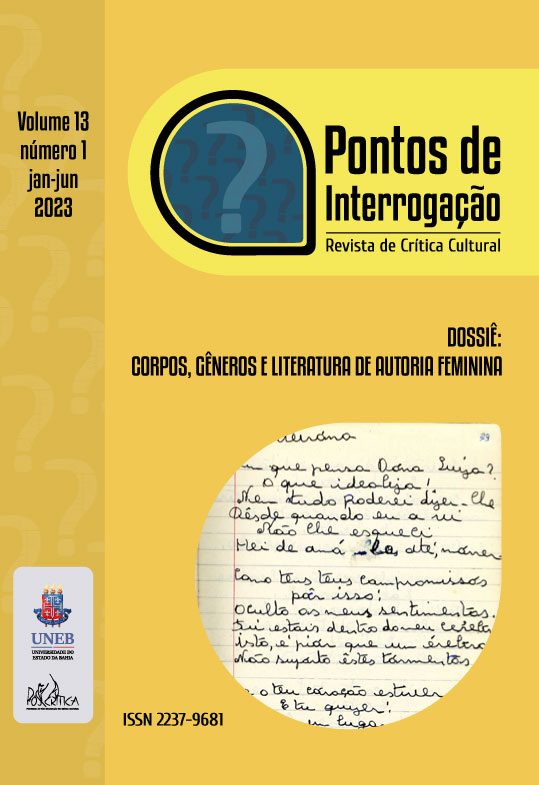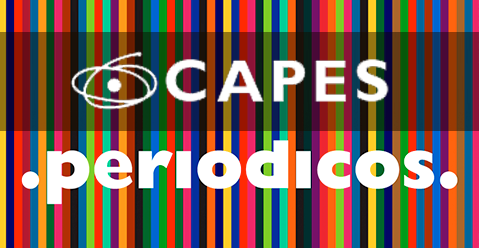Ecos da memória
a escrita do eu como forma de denúncia em “Estátua de Sal” de Maria Ondina Braga
DOI:
https://doi.org/10.30620/pdi.v13n1.p239Palavras-chave:
Maria Ondina Braga, Literatura portuguesa a Oriente, Literatura de Macau, Literatura no feminino, Escrita do EuResumo
Maria Ondina Braga (1932-2003), escritora portuguesa itinerante e contemporânea, convoca, frequentemente, os temas da viagem e da alteridade para a sua estética literária. A par destas linhas temáticas, a obra em estudo, Estátua de Sal (1983), constitui-se como autobiografia romanceada onde a experiência biográfica de Ondina Braga é ficcionada, literarizada e, sobretudo, autoanalisada. O presente artigo, debruçando-se exclusivamente sobre a obra referida, intenta o seguinte: (i) num primeiro momento, revisitar aspetos da teoria literária enquadrando, por um lado, especificidades da escrita do Eu em Maria Ondina Braga e, por outro, apresentando genericamente a obra; (ii) de seguida, dois objetivos primordiais. O primeiro é o de problematizar a arquitetura da memória, ou dito de forma diferente, o modo como a memória é estruturada no espaço da narração e partilhada com o leitor; o segundo aspeto relaciona-se com a concretização de uma primeira análise dos excertos textuais selecionados; (iii) num terceiro quadro, o exercício explora a revisitação e a partilha do mundo interior da personagem à luz de uma linha de leitura que entende a escrita como espaço de denúncia e de crítica de vetores sociais e culturais.
[Recebido em: 29 jan. 2023 – Aceito em: 10 jun. 2023]
Downloads
Referências
AHAD, H.; KUMAR, C.; REDDY, K. & MAHESH, K. (2010). Somnambulism Sleep walking disease. JITPS, 1 (4), 175-180.
AGUIAR E SILVA, V. (1989). O texto literário e o ensino da língua materna. AA.VV, Congresso sobre investigação e ensino do Português. Lisboa: Ministério da Educação.
ALVES, A. C. (2022). Cultura chinesa uma perspetiva ocidental. Coimbra: Almedina.
AZEVEDO, F. (2012). Metodologia da língua portuguesa. Porto: Porto Editora.
BAKHTIN, M. (1986). Speech genres and other late essays. Austin: The University of Texas Press.
BRAGA, M. O. (1983). Estátua de sal. Lisboa: Ulmeiro.
BRAGA, M. O. (1965). Eu vim para ver a terra. Lisboa: Agência do Ultramar.
D'ALTE, P. (2022). Figurações da mulher na literatura de expressão portuguesa a Oriente: os casos de Luís Cardoso e de Senna Fernandes. E-Rei, Revista de Estudos interculturais, 10, 1-22.
D'ALTE, P. (2021). Figurações da mulher nos contos macaenses de Conceição, Ondina Braga e Senna Fernandes. Asas da palavra, 18, 2, 20-35.
GENETTE, G. (2009). Paratextos editoriais. São Paulo: Ateliê Editorial.
EDWARDS, J. (2017). The folly of looking back in fleeing out of Sodom. Ontario: Devoted Publishing.
ELIADE, M. (2016). O sagrado e o profane. A essência das religiões. Lisboa: Relógio d’Água.
FERNANDES, R. M. (1993). Catábase ou descida aos infernos: alguns exemplos literários. HVMANITAS, XLV, 347 359.
GIL, J. (1993). O espaço interior. Lisboa: Editorial Presença.
GUSDORF, G. (1991). Les écritures du moi. Lignes de vie 1. Paris: Ed. Odite Jacob.
HALL, S. (2003). A identidade cultural na pós-modernidade. Rio de Janeiro: DP&A.
HARD, R. (2004). The Routledge handbook of Greek mythology. London: Routledge.
JUNG, C. (1996). The archetypes and the collective unconscious. London: Routledge.
LAMAS, E; BOTELHO, A. & CASTELO BRANCO, M. (2000). Dicionário de metalinguagens da didáctica. Porto: Porto Editora.
LEVINAS, E. (2012). Deus, a Morte e o Tempo. Lisboa: ed. 70.
LEVINAS, E. (1969). Totality and Infinity: An essay on exteriority. Pittsburg: Duquesne University Press.
LIMA, I. P. (1989). Para uma poética da suspensão em Maria Ondina Braga A casa suspensa uma novela exemplar. Letras & Letras, 19.
MARTINS, O. J. C. (2021). Poética da relação em Maria Ondina Braga: viagem, auto-exílio e errância cosmopolita. In Moniz, A.; Pinheiro, J.; Coelho, L.; Sousa, A. & Cristina (coord.). Viagem e cosmopolitismo. Da ilha ao mundo. Famalicão: Húmus.
MERLEAU-PONTY, M. (2011). Fenomenologia da percepção. São Paulo: Martins Fontes.
PEDROSA, I. (1987). Maria Ondina Braga: ninguém conta três vezes como ela.... Jornal de letras, Artes e Ideias, 5-1-1987, p. 13.
PEREIRA, J. C. (2015). O delta literário de Macau. Macau: IPM.
REIS, C. (2008). O conhecimento da literatura introdução aos estudos literários. Lisboa: ed. Almedina.
ROMDENH-ROMLUC, K. (2011). Merleau-Ponty and phenomenology of perception. New York: Routledge.
ROSENBAUM, R. S.; KOHLER, S.; SCHACTER, D. L.; MOSCOVITCH, M.; WESTMACOTT, R. & BLACK, S. E. (2005). The case of K.C.: contributions of a memory-impaired person to memory theory. Neuropsychologia, 43, 989-1021.
SAUNDERS, M. (2010). Self-Impression: Life-writing, autobiografiction and the biographical forms. London: Fitzroy Dearborn.
SCHOLES, R. (1989). Protocolos de leitura. Lisboa: Edições 70.
SILVA, M. A. (2018). Avatares do feminino em Maria Ondina Braga. E-letras com vida, 1, 12-21.
SIMAS, M. & MARQUES, G. (2016). Contributos para o estudo da literatura de Macau. Macau: ICM.
SOUSA, I. C. (2011). A outra metade do céu. Escravatura e orfandade femininas, mercado matrimonial e elites mercantis em Macau (séculos XVI e XVII). Macau: Universidade de S. José.
WALSH, R. (2007). The rhetoric of fictionality: Narrative theory and the idea of fiction. Columbus: The Ohio State University Press.
TULVING, E. (2002). Episodic memory: from mind to brain. Annu. Rev. Psychol, 53, p. 1-25.
Publicado
Como Citar
Edição
Seção
Licença
Copyright (c) 2023 Pontos de Interrogação – Revista de Crítica Cultural

Este trabalho está licenciado sob uma licença Creative Commons Attribution-ShareAlike 4.0 International License.
Autores que publicam nesta revista concordam com o seguinte termo de compromisso:
Assumindo a criação original do texto proposto, declaro conceder à Pontos de Interrogação o direito de primeira publicação, licenciando-o sob a Creative Commons Attribution License, e permitindo sua reprodução em indexadores de conteúdo, bibliotecas virtuais e similares. Em contrapartida, disponho de autorização da revista para assumir contratos adicionais para distribuição não-exclusiva da versão do trabalho publicada, bem como permissão para publicar e distribuí-lo em repositórios ou páginas pessoais após o processo editorial, aumentando, com isso, seu impacto e citação.























